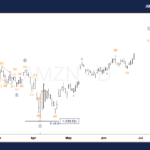Not long after Hurricane Milton—the second-most intense Atlantic hurricane ever recorded—as well as Hurricane Helene left a trail of destruction in Florida, construction resumed in flood-prone areas affected by the storm’s wrath. This is an indication of Florida’s enduring popularity.
According to U.S. Census data, about 1 million people moved to Florida in 2023, increasing demand for housing and investing. However, with extreme weather on the rise and the Sunshine State in the crosshairs for some of the region’s most vociferous hurricanes (and the sky-high insurance costs that accompany them), investors, developers, and tenants have to ask themselves if Florida has lost its real estate shine.
According to the Wall Street Journal, Florida has built 77,000 new properties in high-risk flood areas since 2019, the most in the nation. However, despite the apparent unwavering optimism from developers and lenders, investors looking to buy and rent condos in the state for short- or mid-term tenants might have their decisions made for them by the soaring cost of insurance.
Soaring Insurance Costs Are a Big Issue
Because of the volume of new construction in Florida, insurance bills for hurricanes Milton and Helene are expected to be between $40 billion and $75 billion. According to S&P Global, as quoted in the Wall Street Journal article, home insurance underwriting losses have amassed $32 billion over the last four years.
Rick Matos, a Realtor and investor from Lehigh Valley, Pennsylvania, owns a condo in Bradenton in Manatee County, on Florida’s Gulf Coast. Like many Florida condo owners, he leases the condo as a mid-term rental and uses it as a second home when he wants to escape the frigid Northern winters.
Matos told BiggerPockets that the conversation among Florida property owners is all about insurance. “Insurance prices have gotten crazy,” he says. “A big part of it is clearly due to the weather, but also because home prices and construction have increased so much that the rebuild costs have also increased. As a result, those costs are passed on to the tenant struggling to rent.”
Many insurers need help comprehending Florida’s thirst for construction amid worsening weather patterns. “We build in some of the most silly places, knowing what could happen,” Andrew Siffert, senior meteorologist at insurance broker BMS Group, told the Wall Street Journal.
Most insurers are adjusting for the uptick in claims and increasing costs accordingly. “I project that there’s going to be a spike in insurance across the board. Even if you didn’t file a claim, we’re all in this pool together,” Brian Wilcox, a commercial insurance agent at Five County Insurance, told a local news station in the wake of hurricanes Milton and Helene.
Supply and Demand Still Favors Investors
Matos says that demand for Florida real estate is so high that he can’t see investors turning their backs on the state.
“It’s a supply-and-demand situation, along with the land to build on, which Florida still has a lot of,” he says. “ So, I don’t see people suddenly deciding not to invest there, as long as tenants are willing to pay what it takes. The breaking point is going to be when insurance costs get so high that owner-occupants won’t be able to afford them.”
New Building Codes Are Limiting Damage
The new Florida building codes, which mandate a concrete structure and conform to a specific design, alleviate many lender, developer, and insurer fears. Its rep, an agent with Serhant, told the Wall Street Journal that La Linda Estates, which consists of 13 homes priced just below $3 million on Siesta Key near Sarasota, steps from the Gulf of Mexico, suffered minimal damage from Milton’s direct hit.
While sturdier construction might protect from high winds, concrete buildings are still prone to flooding, and according to WSJ analysis, Florida leads the nation in developing properties in high-risk flood areas. However, many of the developments are located on the border of flood zones. Thus, marketing information could be misleading, and they might not be eligible for flood zone insurance.
Invest With Caution
If rents can support the increase in insurance costs—a big “if”—such is the demand to live and visit Florida suggests that it still makes sense to invest there, as long as it’s done sensibly. According to the state’s strict building codes, that means buying out of flood zones. If this is the case, then Florida will not stop being a good place to invest—at least in the short term.
The Long-Term Effects of Climate Change on Florida Real Estate
The rising cost of insurance is a big unknown in Florida. Although insurers have recently put a brave face on the situation and offered supportive words to the real estate industry, they must be wringing their hands behind the scenes. High insurance costs have collided with high interest rates and rising house prices to create a perfect storm of unaffordability.
“This current interest-rate environment has exposed the people that know what they’re doing and those that don’t,” Mario Kilifarski, the head of asset management at Fundamental Advisors, a New York-based investor with $3.5 billion in assets, told the New York Times regarding the recent Florida storms.
Commercial Real Estate in the Crosshairs
The first sector to suffer from the cost increase will be commercial real estate, which is already experiencing a torrid time. Apartment building insurance costs now account for 8% of operating expenses, twice what they did about five years ago, Paul Fiorilla, director of research at data provider Yardi Matrix, said in the same Times article. With rising costs in other areas, Florida landlords have been under more strain than ever in recent years. Once lenders deem the risk as too great and stop issuing loans, expect seismic changes.
“Insurance pricing has caused deals to come to a halt and has forced deals into foreclosure in some cases,” Danielle Lombardo, the chair of the real estate, hospitality, and leisure division at Willis Towers Watson, an insurance brokerage, told the Times.
Though a simple solution is for banks to buy insurance with higher deductibles to reduce the coverage risk or approve policies where the bank gets paid first, banks are unwilling to approve such deals. In such cases, neighborhoods would suffer without factoring in rebuilding costs, and the banks’ collateral would crater.
Final Thoughts
Inevitably, something has got to give. In the short term, that could involve renovating and maintaining multifamily buildings while landlords try to stay afloat amid rising costs. Empty office skyscrapers bereft of workers are also pummeling their owners amid stubbornly high interest rates.
However, this is not Florida’s first rodeo regarding hurricanes, and the overall trajectory for investment has ascended in recent years. Problems arise in hurricanes, with older buildings built with less demanding construction codes. Since the Surfside condo collapse three years ago, tougher building codes have ensured buildings can withstand extreme weather. For investors looking to buy a Florida condo, buying newer rather than older is the prescient move.
For smaller investors looking to earn cash-flowing single-family homes and condos, with the average cost of a Miami home, for example, approaching $600,000, short-term renting seems to be the only game in town to earn cash flow—providing you pay attention to the city’s vacation renting rules.
In other locations in Florida, due to a fluctuating housing market, there might be more wiggle room to strike a deal. Should interest rates plummet, the potential to earn cash flow increases. However, nothing safeguards you against rising insurance costs more than buying all-cash homes constructed according to newer building codes and out of flood zones.
Find the Hottest Markets of 2024!
Effortlessly discover your next investment hotspot with the brand new BiggerPockets Market Finder, featuring detailed metrics and insights for all U.S. markets.

Note By BiggerPockets: These are opinions written by the author and do not necessarily represent the opinions of BiggerPockets.





